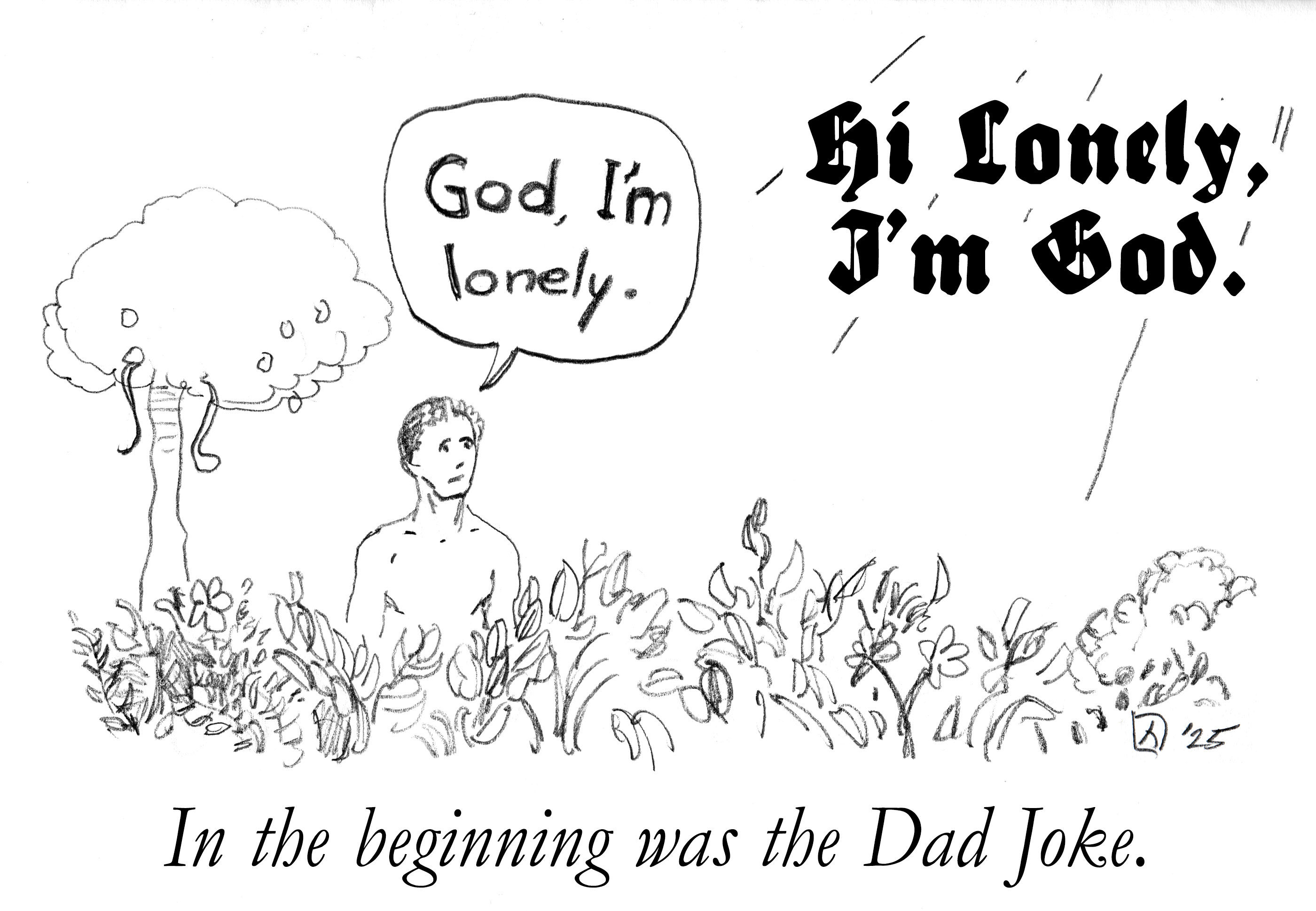Previous pieces include “Why Persuasion Should be a Sweet (Not a Dirty) Word”; “The Threat of Persuasion”; “My Truth? Your Truth? No Truth?”; “The Virtues of Strong Disagreement”; “Our Judgment Against Judgment”; and “Why Bother Engaging with Stupid, Duped, or Evil People?”
The Big Idea. As we’ve explored, entering a conversation with a presumption of bad faith on the part of the other person is a great way to cripple its potential. More than just a conscious choice, what many people don’t realize is how often this presumption shows up in unexamined frameworks we bring to important questions like climate change, science, religion, sexuality, and health matters. In each case, these broader frameworks often position the conversation in a way that cast dissenting voices as automatically stupid, unsophisticated, duped, lazy, or evil. For instance, “are you a loving person … or a bigot?” (a gay activist might ask his religious neighbor); “Do you have a righteous claim of oppression … or are you lost in your sins and deluded by Satan?” (that same religious neighbor might ask his gay activist friend); “Are you supportive of science … or a climate denier?” (a “climate change believer” might ask her more skeptical neighbor); “Are you a victim of a climate change hoax perpetrated by the New World Order … or do you simply not want to face the facts about the way the world really works?” (a person with a theory about conspiracy might ask his doubting neighbor); “Are you in favor of defending public health … or one of those anti-vaxxers?” (a person who “believes the science” might ask her more skeptical neighbor); “Are you calling out pseudoscience … or are you merely duped by Big Pharma”? (her concerned neighbor might ask her in return).
In a very real, tangible way, these kinds of frameworks create what we would call an impossible conversation—at least, if by “conversation” we mean a productive, free-flow of ideas between reasonable, thoughtful participants. Rather than fostering space for that kind of back-and-forth, these kinds of accusatory frames effectively function to advance one particular viewpoint by shutting out the influence of rival views. And let’s be honest: If that’s (actually) what you want, then it does make sense to aim for a pseudo-conversation designed for a one-way influence that silences the other.
But is that what most of us really want? Will we get our way in the long run by embracing a conversation that makes our rivals appear to be idiotic or insane? (We might, right? But even if we do, is that the victory we’re really hoping for?) Even if adopting terms of a conversation more favorable to our views did “shut them out,” do we really want to risk losing whatever insight into the whole truth of the matter “they” might have provided (had we listened to them)? Once more, do we want to risk sowing seeds of resentment deep in the hearts of those we have shut-down, only to perhaps reap a bitter (possibly even violent) harvest later? Even more fundamental of a question still: is that how we ourselves would want to be treated?
Introduction. Imagine a survey was conducted of 100 million Americans that asked a single question: When you think of the important conversations happening in our country about challenging issues like sexuality, contested religious truth or philosophical ideals, tax fairness, education advantages, health care costs and priorities, reproductive, end-of-life and bioengineering ethics, climate change strategy, etc.—do you believe your own views and positions are being represented and considered fairly in public conversations about these issues today?
What would those 100 million people say? Across these important questions, what percentage of them would generally answer “Very much so” (yes, my views are being represented!)
Our guess would be the number is not very high. On virtually every question that matters to the well-being of our society, it’s hard to look out (with a straight-face, at least) and argue that we’re having productive, high-quality conversations these days. Once such a high level of contempt and distrust takes over, it’s as if both sides are operating in a competing vortex charged with potent forces working against an honest account of differences—and instead, framing the entire exchange pre-loaded to confirm the righteousness of our own side.
Most of us have become so accustomed to the conversational frames that raise up only one side as reasonable that most of us just move forward assuming this is how things are—with a kind of inevitability to it all. Despite the stacked discursive deck, we most often presume that conversation is still happening—at least to the level it needs to function well enough.
Is it? Perhaps no symptom bodes more poorly for the condition of our body politic than the number of Americans who continue to feel (and report) their voice is simply not being heard and understood—represented and considered—in America today.
Admittedly, this is not the condition everywhere—nor with everyone. But it’s safe to say that most people feel some of that frustration over being misunderstood these days. Think now about just a few cases among many before us:
In three of the conversations that have felt most urgent and life-and-death to Americans over the last decade (climate, sexuality, and health), they have each often been framed in a way that makes it difficult to see how any reasonable person could disagree with “us.” People with concerning questions about the scientific consensus are labeled “climate denier” by those in alignment with the scientific census, while the latter are deemed dupes for falling for the groupthink and political agendas behind the climate ‘alarmism.’ On the question of gay marriage, people who are opposed to legalization or have concerns about the implications, are called “bigots and haters,” while gay marriage activists are seen (by the other side) as flying in the face of all that is natural, commonsensical, and divinely ordained. When it comes to vaccinations, anyone refusing to have their children vaccinated are placed in the box of “anti-science” or crazy “anti-vaxxers,” while those who dutifully line up for their next shot are seen as sheep being led to the slaughter by those who feel that the evidence against vaccine safety and efficacy is clear.
Rather than establishing conditions for thoughtful people to explore differences (and hear each other out deeply), these particular conversational set-ups predispose a very different affair: one of deep resistance to even the possibility of engagement with honest disagreement right from the get-go.
As a result, rather than seriously considering what climate change could actually mean for our country, activists are regularly lambasted as radical environmental extremists. And rather than seriously considering the honest questions about presumed Earth-threatening consequences climate change is claimed to represent, critics are regularly written off as science deniers too ignorant to even consider listening to further—and too dangerous to allow to participate in public discourse.
Rather than seriously considering the concerns people are raising about some vaccinations, many people regularly write off the activists as batty fanatics, “anti-vaxxers” hardly worth reasoning with, let alone allowing into legitimate public discourse. And rather than seriously considering the argued benefits of vaccination throughout history, proponents of vaccinations are regularly written off as stooges for Pharma and blinded to the reality of the conspiracy they are perpetuating.
Rather than seriously considering the deep confusion and pain of a young person growing up with sexual attraction that does not conform to majority norms, many of us simply label LGBT activists as dangerous threats to sustaining a healthy social order, or enemies of the divinely established plan of life. On the other hand, rather than seriously considering traditional social norms as being helpful at all—as distilled human wisdom or religious social ideals that support responsible heterosexual marriage and child-rearing—many simply label traditionalists as oppressors promoting old ways to maintain their social power, or bigots hiding their deep-seated prejudice under a cloak of religious freedom. Most people are simply not aware of the conversational air they are breathing or the discursive soup they are swimming in.
Good luck having a conversation (a legitimate, insightful one open to mutual influence)—about any of that! As long as those are the terms of conversation, heaven knows we have little chance at hearing anything from those who see the issues differently than we do.
And yet we carry on, move forward, and keep “talking” about these questions as a country— hardly aware of these larger conversational frameworks in which we operate. Why?
The most generous answer would be that most people are simply not aware of the conversational air they are breathing or the discursive soup they are swimming in. Like fish swimming in a fishbowl, we get so used to a certain way of framing up issues that it’s no longer visible to us. It just is.
That, no doubt, accounts for a large percentage of the reason we keep carrying on—and talking little about these larger frameworks. But there is more to the explanation.
The purpose-driven discourse. It’s also the case the conversations we are having serve a purpose—a specific purpose—for some constituencies and interests. It is not at random that we end up talking about climate or vaccinations or sexuality (or immigration or policing or religion) in the ways we do. Depending on the particular passions and convictions of one group or another, a conversation gets set up in a way to advance those views and values. That’s just how it happens.
For one instance, while climate skeptics might raise legitimate concerns about a larger discourse that frames up anyone with questions as a “climate change denier,” it’s fair to say this larger framing is quite satisfying to those whose primary concern is stopping climate change— whatever the cost. And likewise, while those with questions about vaccinations might grow weary about being written off as crazy “anti-vaxxers”— isn’t that exactly what you should do if you’re fearful reduced vaccination rates might imperil public health in a profound way?
Lastly, though religious conservatives might feel concerned about being labeled bigots for their views (and standing in the way of the ongoing march for expanded gay rights), it’s hard to deny that this rhetoric has been an especially effective way to help advance the LGBT movement over the last 10 years.
In each case, of course, similar attention could be given to the framing of the other side of the conversation—how climate warming skeptics, mass vaccination opponents, or gay marriage critics frame up the views and desires of the other side. Clearly, the preferred framework of each of these groups likewise has built-in victory for their own side just as their rivals do—with opponents all stooges for evil corporations, or evil cultural/social/political agendas.
In each case (on all sides), those who stand in opposition are portrayed in ways that make it very hard to maintain disagreement. Who wants to be seen as evil, ignorant, anti-science, crazy, or hateful?
Boxed out of cultural relevance. The threat of these public accusations is real—especially when your side is no longer “winning” culturally or politically. As one viewpoint “wins” and comes to dominate the national discourse, what happens with those who disagree? What do we do with them?
For instance, what do we do with those voices that are not in line with fighting climate as the great threat to our planet? What about those parents who insist that vaccination can and does cause real harm to children? What about those religionists who believe that an open embrace of homosexuality leads individuals towards greater despair in this life, and forfeiture of blessings in the next?
Rather than accommodate these voices amidst a healthy, robust pluralism, the answer increasingly seems to lean towards not only silencing them (which has been happening for a long time) but legislatively pressing them and limiting their freedom to operate: Removing tax-exempt status from those faith communities insisting on an orthodox Biblical interpretation of marriage. Removing vaccination exceptions as a legitimate option for children entering public school. Imposing a carbon tax on those whose practices transgress the established environmental standards.
Force, force, force. This is what gets the libertarians up in arms (sometimes literally). Coercion is the end result of policy changes, even if it doesn’t look that way initially. Once your side loses that much and your side gets boxed in far enough, make no mistake: the coercion is real.
One reason Jacob gave up applications for a faculty position is it became so clear he wouldn’t be seriously considered with his Latter-day Saint religious views.
Is that really the society that we want? When we do win, is that how we’d like our victory to play out? Do we really think losers who feel silenced and forced to comply will become trustworthy colleagues after their defeat?
Maybe. But whatever hopes people might have in the law leading people in the right direction (a hope, let’s admit that civil rights activists and old testament scholars both sometimes hold), the counter-examples are too hard to deny. Rather than advancing a pro-choice, feminist ethic, Roe vs. Wade became a festering wound and touchpoint for the country over the last 30 years. While one side insisted on the force of law, the other raised impassioned cries about its injustice. Some argue the same thing has taken place over the last decade the rapid policy sea change around gay rights.
But couldn’t these old prejudices simply (eventually) die away, as a new birth of civil rights emerges? And might we still see on the horizon an emerging consensus about health matters, environmental policy, sexuality (and many other matters) that makes the opposition of today seem one day silly and quaint?
Truth obscured? That’s what many have believed and put their faith in—a faith that, however tested in the current political climate, centers on the idea that the environmental activists are advancing the full truth of the matter, the health care system today embodies (more or less) the essential biological truth about how healing happens, and the gay rights movement is advancing the higher truth about the scope of human nature (including identity, sexuality, love, and life itself).
Is any of this—or all of this—true? And if not (to our primary point), how would we ever be able to find that out within the current prevailing conditions of conversation today?
The answer is: we probably wouldn’t. If the consensus views on climate, health, and sexuality turn out not to be true—or at least the full truth—there is every reason to believe that this would be profoundly hidden within the existing terms of public conversation: maybe even invisible. Most people would be blinded to even the possibility of anything else.
Should that concern us? If you ask the critics and skeptics, they will shout a chorus of Hallelujah Yes—and be happy to tell you all the reasons that should concern us. But once again, why would we ever listen to them? Why would we take pains to structure a conversation where ideologically minority voices are heard fully, right alongside the dominant views?
Because none of us can be sure we have access to the “whole truth”—and all of us have more to learn (no matter how convicted we are that we’re in possession of unvarnished truth). And approaching and approximating that truth (more and more) matters. Partly true and fully true are not the same. And if we’re not prioritizing the latter, if we’re overlooking or minimizing or denying space for that—we’re also denying space for the benefits that truth, itself, could offer us all. If only adding some nuance to the dominant views or softening their hard edges (or sometimes hardening them), even minor adjustments could make a substantial difference.
But that all depends on our appetite to receive more truth rather than just more social or political victories. What are we most hungry for? Good faith is all about extending your hearing in mutual risk and mutual hope that your cherished belief system can handle more truth and even benefit from it.
We shall find out. In the meanwhile, distinctive (albeit hidden) conversational frames continue to be a central and crucial part of advancing a particular ideology, creed, or cause. To walk away from that kind of victorious advancement—even in the name of higher quality conversation, an openness to all voices, or a pursuit of the full truth—is just a tough sell. How much more important it is to Advance the Cause—than all these other high-minded, philosophical or ethical quibbles?
Truth revealed (together). In fairness to us all, promoting what each of us sees as good, true, and beautiful is compelling enough to be a dominant interest—arguably more important than anything else. So, of course, you’re going to be eager to embrace a conversational frame that makes that more likely. Indeed, if you already believe a conversational frame is crucial for advancing your cherished ideology, creed, or cause, you will likely feel morally obligated to employ it to advance your just cause to victory for the benefit of all right-thinking people. Higher quality conversations, openness to the influence of other voices, rehashing ethical quibbles, even seeking more (extraneous) truth—these will seem like trivial entertainments distracting from the diligent use of your trusty framing of vital truth.
Indeed, since it is the premise of our project to elicit serious engagements between people who hold their differing ethical priorities strongly and clearly, our goal is to deconstruct typical dialogue and build up from the old bones a new tool of collaborative, “contestational” conversation. We do not plead for people to take a vacation from their ethical or religious priorities—taking a side trip for a little understanding while the main event of saving souls or whales has to wait. In fact, dealing in good faith requires that we live out, speak out our top priorities in front of those who have different top priorities.
And why do that? For this practical reason: no matter your cause, you will increase your chances of saving more souls or whales by engaging in the difficult work of listening as hard as you preach. What appears to be a mere side trip into heart and mind conversations, is in reality the main highway to influencing change in others—and, bracingly, in yourself. The old way of monodirectional preaching is stale if not dead. If you would influence others to see the truth through your frame, you must in good faith open your mind and heart to see the truth through their frame. The truth is discovered through engagement between critics and rivals who extend enough good faith trust to be honestly open to mutual influence.
And to be clear: good faith conversation is not mere civil politeness. It means we believe the ‘other side’ might have something important to add to our story even though we believe what we have to add to theirs is probably more important. Recalling we’ve all been framed by ourselves as well as our critics, let’s look at how we can use that insight to have mutually influential conversations that go someplace new.
One more thing: In old form dialogue people were asked to ‘bracket’ their current beliefs in order to imagine another person’s frame, and thereby gain empathetic understanding. In this new practice, bracketing is not employed. We are instead encouraged to listen hard for a way your belief system could encourage you to hear and respect another human being’s sincere view of reality—even if that view is full of errors. The presumption of bad faith does not allow for courageous listening. Good faith is all about extending your hearing in mutual risk and mutual hope that your cherished belief system can handle more truth and even benefit from it.
Can it? Will it? Think carefully about that. A whole lot will depend on your answer.
In the end, good faith lets us engage in mutual testing of our different frames for their fuller truth value. It is work, very hard work to explore the possibility of being wrong, but there is no progress without the discipline and stamina to do it—in our personal lives or national politics or religious allegiances.
Our flourishing, if not our survival, as Americans (and Earthlings) might well depend on developing a healthy appetite for truth-seeking rather than just “winning.” How hungry are we for it?
One thing is likely unless we risk trying it, like a kid does with strange food, we won’t know how good truth-seeking together, even with our opponents, tastes.
Otherwise, if advancing your cause at all costs is (actually) what you want, then it might just make sense to engage in pseudo-conversations designed for the one-way influence that silences the other or misleads them into a vulnerability that you can exploit as needed.
The Big Invitation: Become more conscious of the larger framework around conversation often taken for granted and invisible to the broader public—letting yourself think more critically about the “terms of conversation” and what they allow and imply (especially for unpopular, lesser-known, minority perspectives). Question and push back on interpretive frames that presuppose and preordain someone disagreeing with a dominant position (or, simply, your own position) as inherently stupid, duped, weak, or outright evil … while advocating alternative framing that does the opposite: establishing space for thoughtful, good-hearted people to land in different places when it comes to important questions.

















